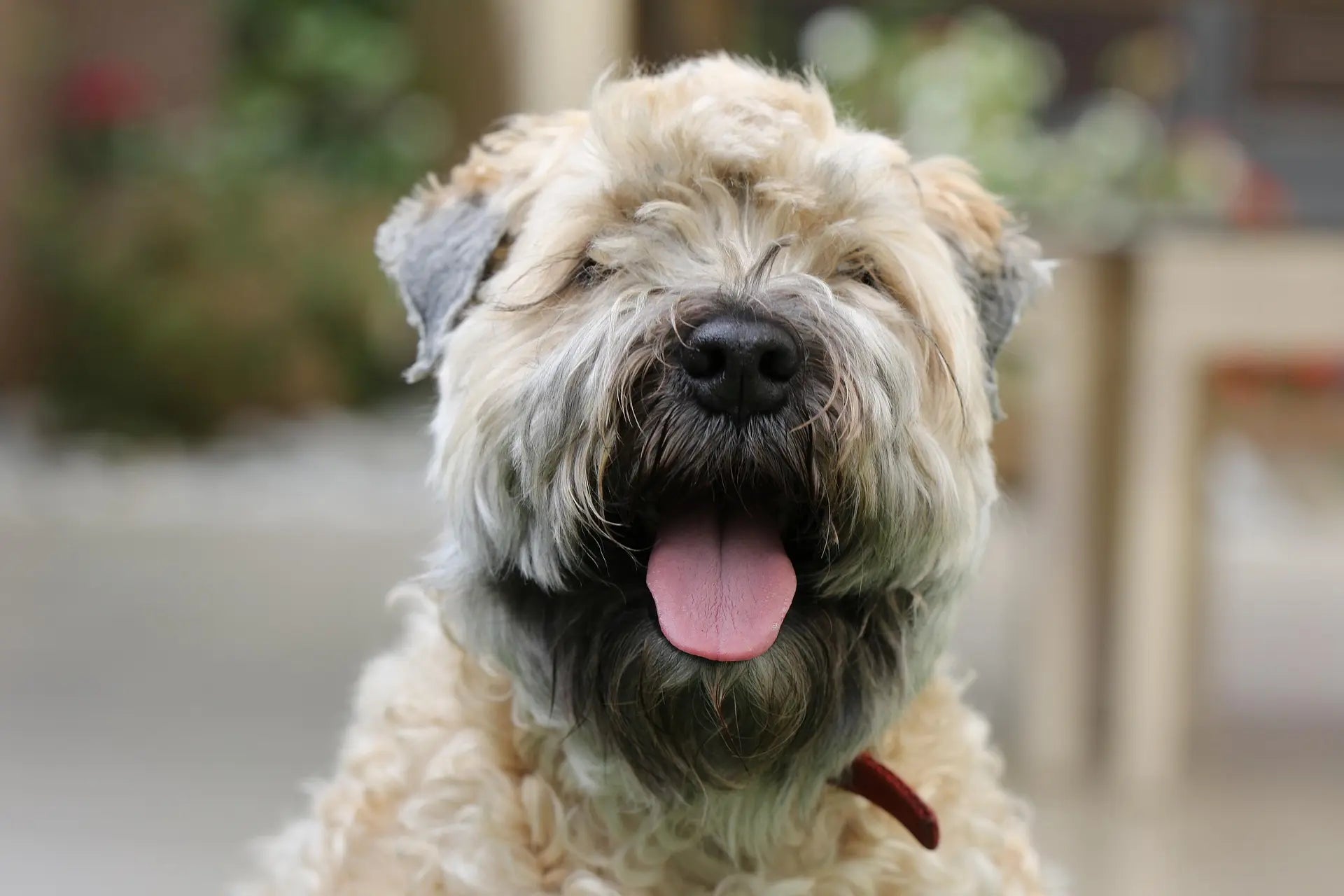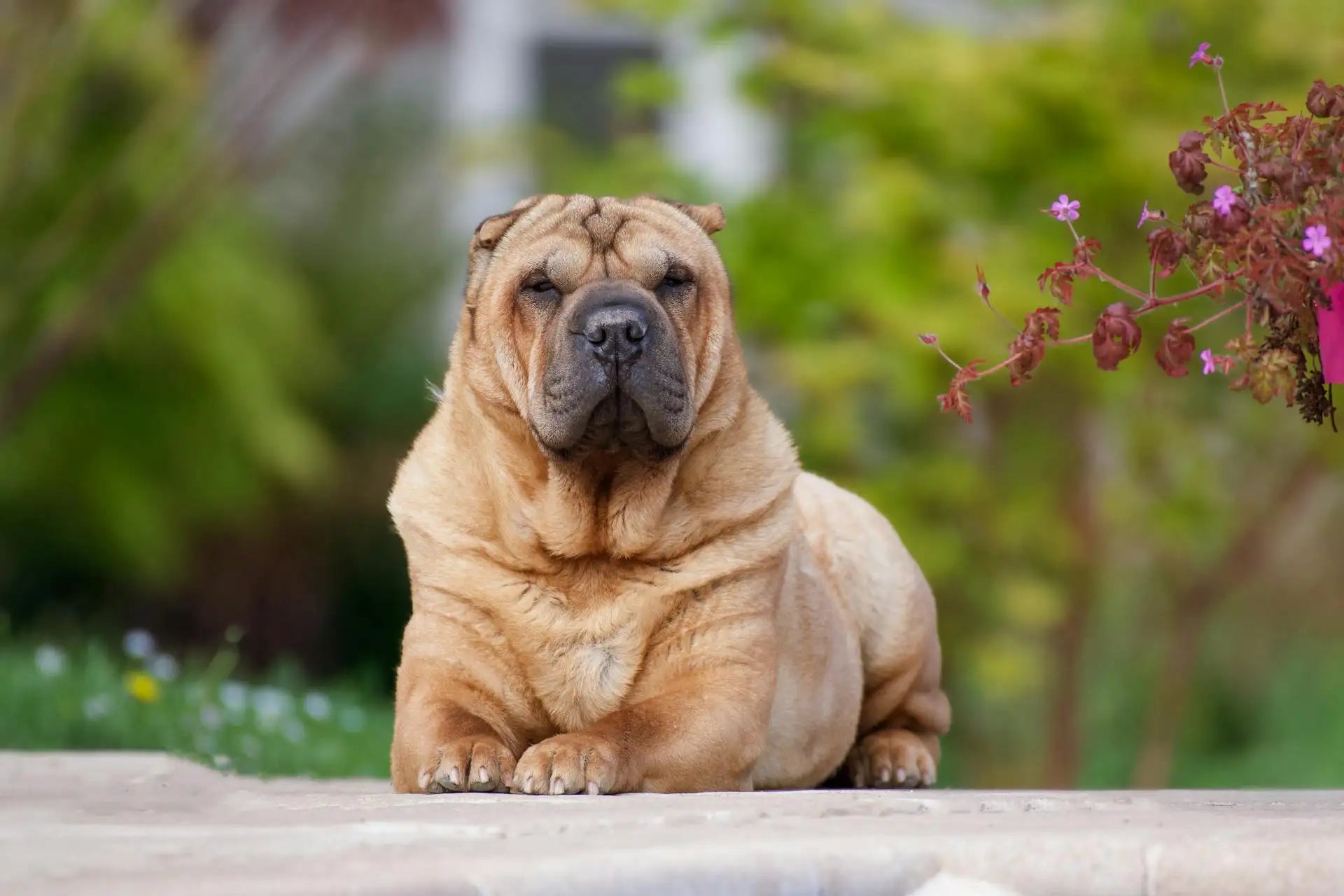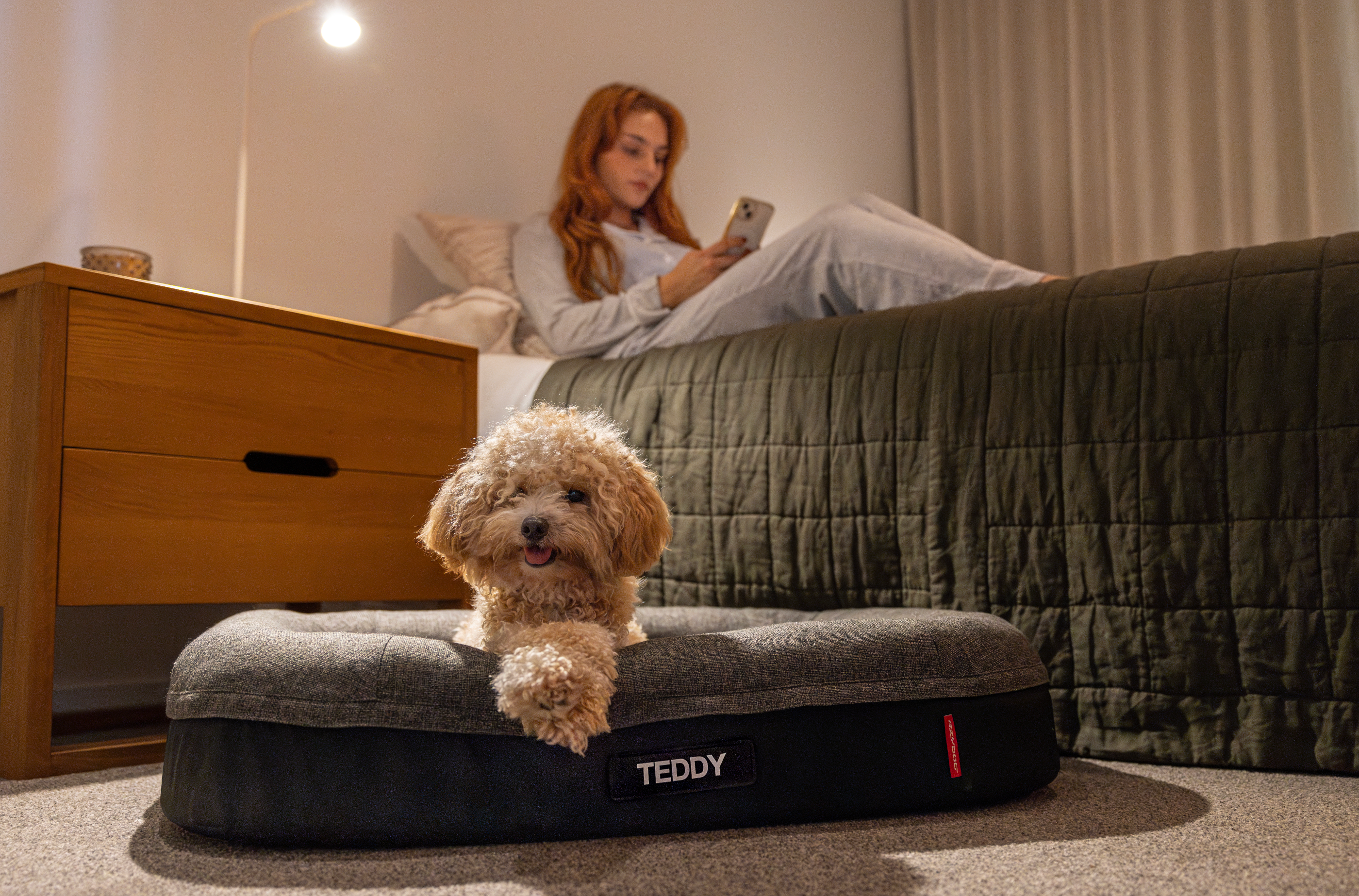
Soft-Coated Wheaten Terrier Dog Breed: Temperament, Grooming & Care Guide
Charming, friendly, and covered in a soft, silky coat, the Soft-Coated Wheaten Terrier is the ultimate balance of playful energy and loyal companionship.
Whether you're drawn to their bouncy personality or their hypoallergenic coat, these terriers make brilliant additions to active homes.
This guide will cover most of the basic insights regarding the Wheaten Terrier to help you understand if this spirited breed is right for your home.
Quick Facts Overview
|
Trait |
Details |
|
Size Category |
Medium |
|
Height & Weight |
Height: 43–50 cm; Weight: 14–20 kg |
|
Coat Type & Colours |
Soft, silky single coat; wheaten (pale beige to golden) |
|
Energy Level |
High |
|
Origin |
Ireland |
|
Grooming Needs |
High |
|
Temperament |
Friendly, spirited, intelligent, affectionate |
|
Trainability |
High |
|
Compatibility |
Great for families, active singles, and allergy-sensitive owners |
|
Lifespan |
12–15 years |
Breed Origins and History
The Soft-Coated Wheaten Terrier hails from Ireland, where it was bred for over two centuries as an all-purpose farm dog.
Valued for its adaptability and tenacity, the breed was used to guard property, herd livestock, and hunt vermin.
Recognised officially in the 1930s, it quickly gained international popularity for its temperament and hypoallergenic coat.
Personality and Temperament
Often called the "happy-go-lucky terrier," the Wheaten is outgoing, affectionate, and deeply devoted to its family.
These dogs are enthusiastic without being hyper, loving without being clingy, and protective without being aggressive.
They're known for the "Wheaten greetin’"—a joyful jumping welcome for those they love. They thrive in homes where they get plenty of attention, stimulation, and interaction.
Coat Types Explained
There are two coat varieties in the breed:
- Irish Coat: Silky and wavy with a fine texture, requiring less volume but more frequent brushing to prevent tangling.
- American Coat: Denser and fuller with a plush appearance, needing more intensive grooming and professional trimming.
Understanding coat type helps tailor the right grooming routine and tools.
Trainability and Intelligence
Wheaten Terriers are clever and eager to please, making them responsive to positive training methods.
-
Start early with basic obedience and socialisation
-
Keep training upbeat and consistent
-
Positive reinforcement using treats and praise yields the best results
-
Use a training harness for better control during sessions
-
Carry treats in a treat bag for quick rewards on walks
Exercise and Activity Requirements
These terriers have moderate-to-high energy levels and need regular physical and mental activity.
-
1 to 1.5 hours of daily activity
-
Enjoy brisk walks, fetch, agility courses, and off-lead runs in secure areas
-
Require mental stimulation through puzzle toys or trick training
-
A hands-free lead allows active bonding on the go
Physical Characteristics
Elegant yet sturdy, the Wheaten’s signature feature is its coat.
-
Height: 43–50 cm
-
Weight: 14–20 kg
-
Coat: Silky, soft, single-layer coat with a natural wave
-
Colour: Always wheaten, ranging from pale beige to gold
-
Best fitted with medium dog gear
Living Environment Suitability
Soft-Coated Wheaten Terriers adapt well to many living situations.
-
Perfect for homes with yards, but can adapt to apartment living with enough exercise
-
Not suited to being left alone for long periods—they crave interaction
-
Sleep soundly on an orthopaedic dog bed
-
Always secure with a dog car harness when travelling
Grooming and Maintenance
Though low-shedding, their coat demands consistent care.
-
Brush thoroughly 3–4 times a week to prevent tangles and mats
-
Professional grooming every 6–8 weeks is recommended
-
Clean ears weekly and trim nails monthly
-
Use a soft collar to avoid damaging their fine coat
-
For American coats, regular trimming is essential to maintain hygiene and coat shape
Common Health Issues
Wheaten Terrier is generally healthy but can be prone to a few hereditary conditions.
-
Protein-losing nephropathy (PLN), protein-losing enteropathy (PLE), renal dysplasia
-
Skin allergies and hip dysplasia can also occur
-
Routine vet visits and early detection are key
-
Support joint health with an orthopaedic bed
Diet and Feeding Guidelines
A balanced diet keeps your Wheaten active and healthy.
-
Puppies: 3 meals daily to support growth
-
Adults: 2 well-balanced meals each day
-
Choose formulas for medium breeds with joint, coat, and gut support
-
Fresh water should always be available
-
Portable bowls are great for travel
Compatibility with People and Other Pets
Wheaten Terriers are sociable and thrive on connection.
-
Great with kids and generally friendly with other dogs
-
Can have a prey drive—early socialisation is key for multi-pet homes
-
Use a coupler lead for smoother multi-dog walks
Behavioural Issues and Management
They may develop behavioural issues without sufficient stimulation.
-
Can become barky or mischievous if bored or left alone
-
Thrive with interactive play, puzzle toys, and varied training
-
A no-pull harness helps manage overenthusiastic pulling
-
Keep a rotation of durable toys to curb boredom
Breed-Specific Activities
Wheaten Terriers excel in dog sports and love interactive challenges:
-
Agility Training: Great outlet for energy and mental focus
-
Obedience Competitions: Sharp minds make them excellent competitors
-
Therapy Work: Their friendly nature makes them well-suited for emotional support roles
Adoption and Breeder Information
Choosing the right source is essential:
-
Reputable Breeders: Ask for health testing, references, and breed club affiliations
-
Rescue Centres: Consider adopting through Soft-Coated Wheaten Terrier-specific rescues for rehoming options
Essential Gear for Soft-Coated Wheaten Terriers
Walking and Training
Comfort and Rest
Fun and Enrichment
FAQs: Soft-Coated Wheaten Terrier
1. Is a Wheaten Terrier a good family dog?
Yes, Soft-Coated Wheaten Terriers are generally great family pets. They are affectionate, friendly, and playful with both adults and children. They thrive in active homes where they receive attention and regular interaction.
2. Are Soft-Coated Wheaten Terriers high maintenance?
Yes, they are moderately high maintenance, especially in terms of grooming. Their soft, wavy coat requires regular brushing to prevent matting, and many owners choose to have them professionally groomed every few weeks. Their energy levels also mean they need daily walks and mental stimulation.
3. Do Soft-Coated Wheaten Terriers bark a lot?
Wheaten Terriers are known to bark when excited or when alerting their owners to something unfamiliar. While they’re not constant barkers, without proper training and routine, they can develop barking habits.
4. Do Wheatens like to cuddle?
Yes, most Wheatens are very affectionate and enjoy being close to their people. While they’re energetic outdoors, many become calm and cuddly when they’re relaxing at home.
5. Are Wheaten Terriers hypoallergenic?
They are considered a hypoallergenic breed because they shed very little and produce less dander than many other dogs. However, no breed is 100% hypoallergenic, so those with allergies should spend time with a Wheaten before bringing one home.
6. Are Wheaten Terriers prone to separation anxiety?
Yes, they can be. Wheaten Terriers are very people-focused and may struggle when left alone for long periods. Without proper training and routine, they can become anxious or destructive when left unsupervised.
7. Can a Wheaten Terrier be left alone?
They can be left alone for a few hours if trained properly and given enough exercise beforehand. However, extended periods alone aren’t ideal. They prefer being around their family and need activities to keep them mentally engaged.
8. Are Wheaten Terriers difficult to train?
Wheaten Terriers are intelligent and eager to please, but can also be stubborn. Early, consistent training using positive reinforcement works best. They respond well to routines and enjoy having tasks or games to focus on.
9. What are the cons of the Wheaten Terrier?
Some challenges with the breed include their grooming needs, tendency to jump up when greeting people (the “Wheaten Greetin’”), and possible separation anxiety. They also require consistent training to avoid behavioural issues.
10. What health issues do Soft-Coated Wheaten Terriers have?
They may be prone to conditions such as protein-losing enteropathy (PLE), protein-losing nephropathy (PLN), and Addison’s disease. Responsible breeding and regular vet checks are important for long-term health.
Final Thoughts
Soft-Coated Wheaten Terriers are affectionate, intelligent, and full of personality. While they do come with grooming demands and benefit from consistent training, they reward their owners with loyalty and lively companionship.
For families who want an interactive, fun-loving dog that’s also cuddly at heart, the Wheaten is a breed worth considering.
Looking for quality gear for your Wheaten?
Visit EzyDog to explore dog accessories tailored for active, medium-sized breeds like the Soft-Coated Wheaten Terrier.




Leave a comment
This site is protected by hCaptcha and the hCaptcha Privacy Policy and Terms of Service apply.